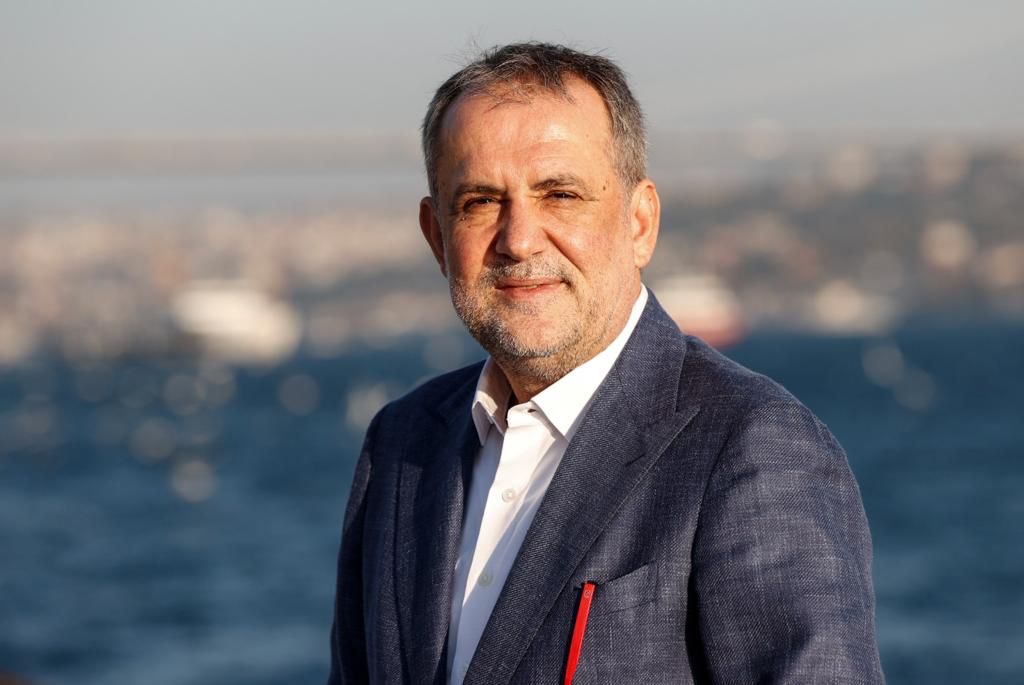Global climate gatherings are a great opportunity to remember that climate change is a common concern of all of us and how important unity is to combat it.
As the Russia-Ukraine crisis deepened, European Union countries, especially Germany, were of the opinion that they should work on constructive solutions instead of destructive ones so as not to harm climate change policies. The Russian authorities, on the other hand, did not believe it was possible for Germany to give up on Russian natural gas resources for the next five to 10 years, and they expected that the Nord Stream 2 line, which was completed but not put into operation as it was not approved, would be made functional somehow, even if not in the short term.
Unlike France, it is possible to expect that Germany, which has taken many steps to eliminate nuclear and coal from its energy mix, will need natural gas resources in the transition to a green economy. Moreover, this is a valid proposition not only for Germany but also for the whole EU, together with the countries that follow similar policies. As a matter of fact, experts do not see a downward trend in the EU’s natural gas consumption in the next 10-15 years, on the contrary, they predict that natural gas will become an increasingly important element in the transition period as it moves toward the 2050 carbon neutral target. In addition, the EU, whose natural gas production is decreasing gradually within the framework of environmental regulations, will have to meet this need with even more gas imports.
The evaluations made by the U.S. Energy Information Administration (EIA) regarding the energy outlook of the region are quite remarkable. In 2020, 80% of the natural gas needs of the EU and the U.K were met by the U.S. through natural gas lines and liquefied natural gas (LNG) imports. Considering that 10 years ago this figure was 65%, it seems possible to say that natural gas is being used as a transition tool to eliminate the use of coal in the context of climate change policies.
In addition, looking at the details of the figures, natural gas imported to the region via pipelines in 2020 accounted for 74% of all natural gas imports, while supply via LNG accounted for the remaining 26% of total imports. In this respect, we see that the EU has to ensure that pipelines operate in a healthy way in order to meet the natural gas need in the current conjuncture.
Dependence on natural gas
In light of this data, it seems possible to say that the EU needs Russian and Azerbaijani natural gas in order to ensure energy supply security in the short term. Of course, at this point, upon the U.S. announcement that it would help the EU much more in meeting its energy needs, it would be useful to follow the developments closely. In addition to the sanctions imposed by the EU and the U.S. against Russia, the fact that leading oil companies such as BP and Shell have terminated their cooperation with their Russian partners – risking billion-dollar losses – and investment funds have abandoned their investments in Russian companies, show us that it will not be easy to interpret future developments. This suggests that the green transformation may take place faster than expected.
A while ago, the EU signed a decision that will lead to a change in climate change policies for the reasons mentioned above. In order to help reduce greenhouse gas emissions, the European Commission has recently decided to qualify investments in nuclear energy and natural gas as sustainable, provided that they meet certain criteria, as well as renewable sources such as wind and solar energy, thus encouraging investment in these areas. Although this decision is considered contradictory within the scope of the EU’s commitments to multilateral climate diplomacy, the goal of making the EU economy carbon neutral by 2050 and the European Green Deal, the European Commission has announced that it aims to alleviate the burden that the increasingly difficult transition to a green economy will put on the members of the union.
Experts who support this decision argue that the proposed regulation will encourage member states and investors to make long-awaited and suspended investments in Europe’s nuclear energy infrastructure, thus aiding the exit from the energy crisis and foreign dependency, while those who oppose the decision argue that the commission will consider natural gas and nuclear energy as carbon neutral and consider it a serious risk for policy. The final decision on the commission’s proposal will be made by the member states and the European Parliament within the next six months.
Climate change test
We express on every platform that climate change is a problem that affects all of us and will negatively affect everyone regardless of their country. In this respect, Russia, which is on the other side of the coin, will have to realize that it cannot continue to adopt a growth model relying on natural gas resources. As a matter of fact, as a result of global temperature increases, it is estimated that the ability of the ground to support existing buildings in Russia’s northern regions will decrease by a third by 2050 and there will be a massive infrastructure disaster that could cause an economic loss of $132 billion according to the estimates. On the other hand, anthrax released from the melting soil in regions where record temperatures are being observed in recent years stands before us as just one of the natural disasters that we may see in the future and poses serious risks to public health if precautions are not taken.
It is clear that investments in climate change in Russia, which has been excluded from the international financial system as a result of the sanctions imposed, will also be adversely affected by the developments. The announcement by multilateral development banks that they have stopped their investments and programs in Russia one by one will be a major obstacle to Russia’s investments when it comes to the risks it will face as a result of climate change. This will cause Russia to have difficulties in borrowing from international markets to implement its projects, therefore, it will slow down or completely stop the Russian green transformation. Actors who cannot make sustainable investments at affordable costs will turn to alternatives such as natural gas which is available abundantly locally.
Depending on how the crisis between Russia and Ukraine unfolds, just as all countries increased their health investments and expenditures during the global pandemic period, experts expect that countries will shift their expenditures to defense, nuclear and renewable energy fields in the coming period within the framework of the current conjuncture. However, it would be an undesirable outcome for countries to shift their budget resources to other areas while increasing the currently insufficient climate finance resources. Considering that the EU is the biggest contributor to climate finance, the EU’s allocation of a part of its budget to defense and nuclear energy fields to deal with the risk of Russia will deal a major blow to the fight against the climate crisis, not only regionally but globally.
A key solution
All these developments show us that the method known as “soft power” in the international relations literature can be applied in the coming period. To explain, soft power can be characterized as an actor’s ability to persuade another actor to comply with their demands without resorting to force or coercion. Today, many countries use this tool to realize their national interests through multilateral dialogue and cooperation.
When country leaders and statespeople come together at meetings or summits such as the G-7 and G-20, they include climate change in their agenda, in addition to the issues they discuss such as terrorism, migration, and trade. So much so that it would not be wrong to state that the climate crisis is one of the most important items on the agenda at these meetings recently. In this context, an approach in which no party is left behind and a country that insists on staying behind puts it at a disadvantage in the international arena is adopted in climate negotiations. Thus, all parties have to take steps to combat climate change and work toward cooperation.
In this respect, the U.N. climate change conferences are of great importance in the conduct of international relations with healthy diplomacy established within the framework of international law. As a matter of fact, in the past, we witnessed that in the negotiations before the Paris Agreement, which took place during the heated debates between Russia and Ukraine, both countries acted jointly through the negotiation group and carried out their diplomatic relations in coordination. Similarly, we observed that they cooperated on climate change while diplomatic tensions continued as a result of the mismatch of economic interests between the U.S. and China. Therefore, climate change conferences under the U.N. umbrella, where all countries seek a common way to cope with the risks they face, are one of the platforms that can be used for the establishment of diplomatic relations in the Russia-Ukraine crisis.
As President Recep Tayyip Erdoğan said, Turkey, which believes that disputes between countries should be resolved through international diplomacy, believes that the problem of climate change is one of the most important problems facing humanity. Ankara believes that at international meetings, especially the U.N. climate summit, all countries should work together in coordination in order to deal with this problem that requires urgent action. Climate change is not specific to individuals, countries, or regions; we must remember that it does not discriminate between race, religion, language and nationality. We must devote all our efforts to tackling climate change while resolving our issues diplomatically. For this reason, climate change, which is a common concern of all of us, will remind countries how important unity and solidarity are and that there is only one earth.


